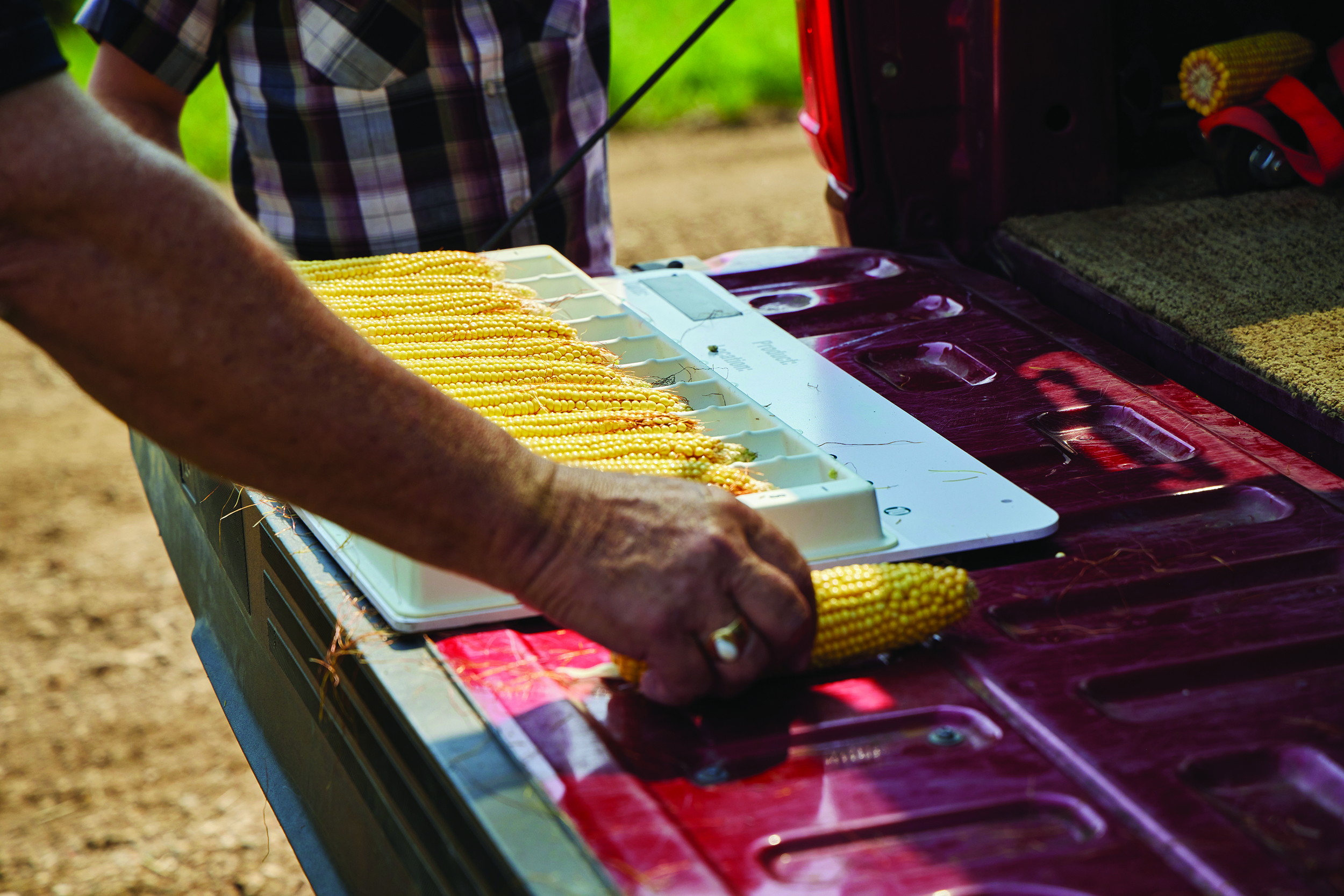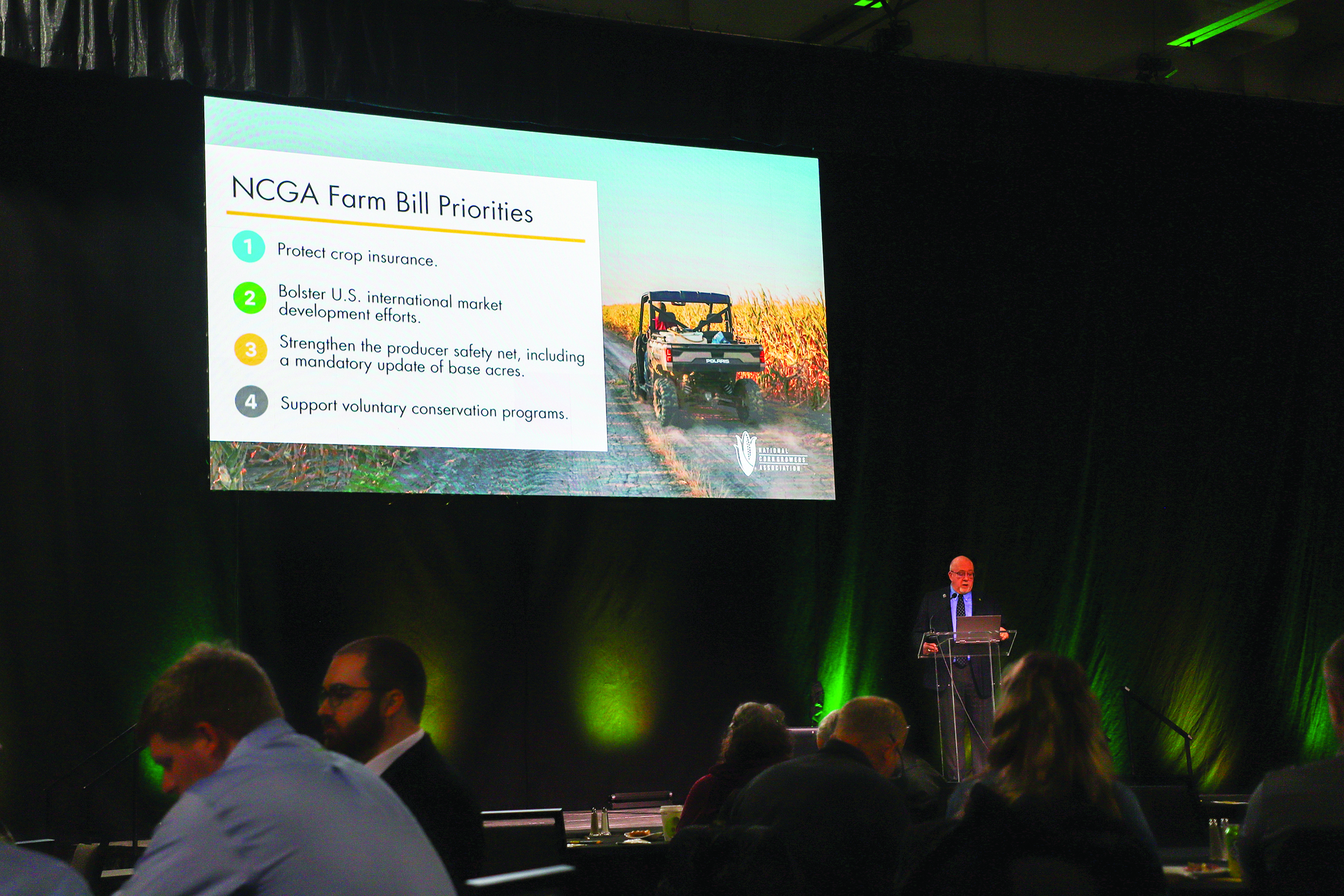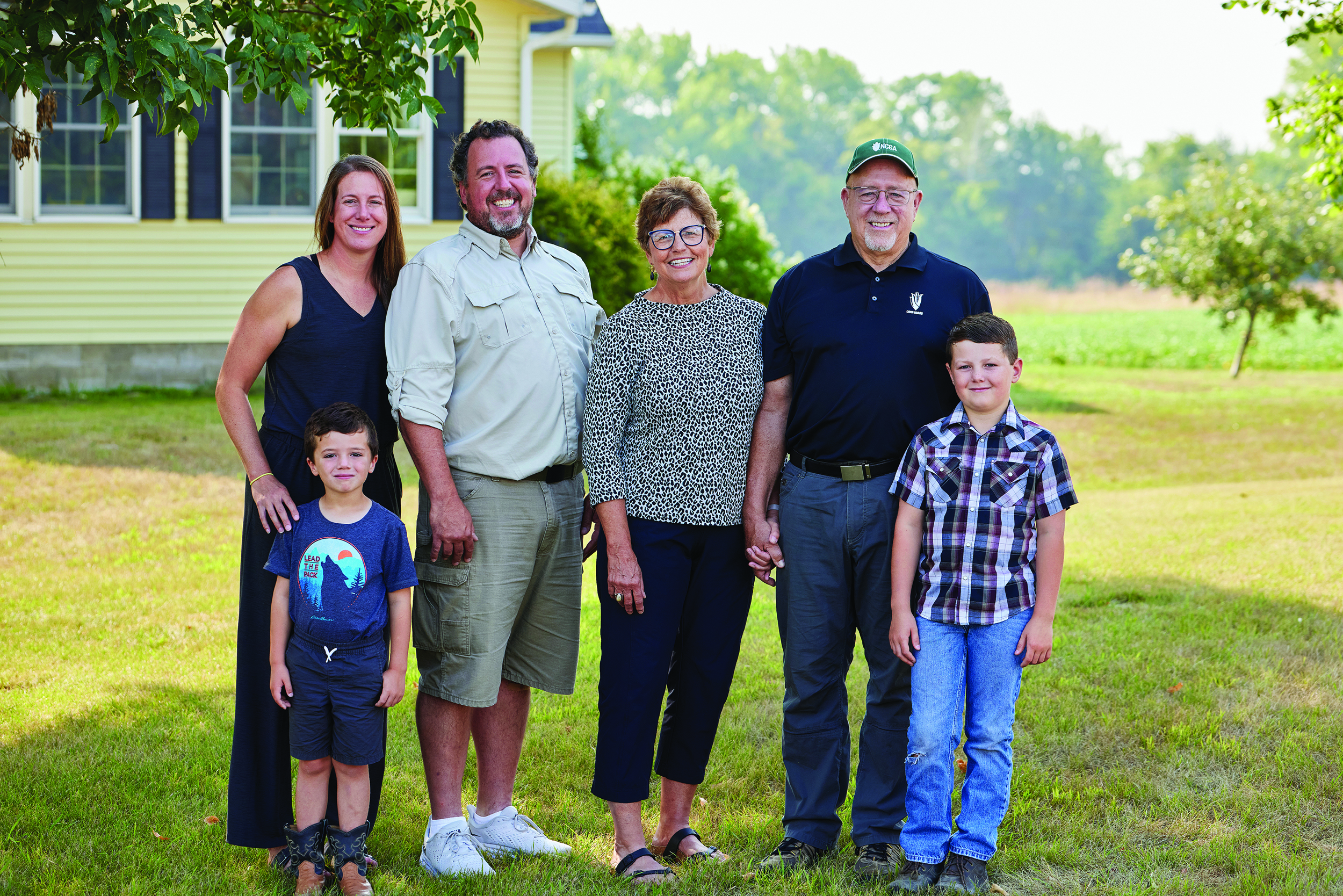Shaping the Future

Fifth-generation Minnesota corn farmer Harold Wolle has seen a lot over the years, but the current climate in Washington, D.C. has him concerned. Not only because of the “fair amount of dysfunction in Congress over the past year”, but because of the shrinking population of farmers across the nation and their ability to advocate for their future effectively.
Wolle is currently the President of the National Corn Growers Association (NCGA), and has also previously served on NCGA committees and the organization’s board including as a board liaison to the National Corn-to-Ethanol Research Advisory Board. In addition, he is also the past president of the Minnesota Corn Growers Association.
He shares, “I want to advocate for corn farmers. We are so few in numbers compared to the population in our country, it’s crucial that we advocate strongly for our industry. We need to do it for ourselves and our future generations because no one else is going to do this for us.”

From Madelia, MN, he has made a conscious effort to transition the leadership of his family farm’s operations to his son Matthew so that he has more time to commit to the NCGA. He laughs, “My son is 45 and since I’ve transitioned the farm to him, he lets me drive his equipment in the spring and fall. I’m not sure who came out better on this deal.”
Wolle’s 2024 Presidential Leadership Theme for NCGA is Shaping the Future. He notes, “Nothing shapes the future like effective advocacy. And no other group does advocacy as well as our state corn grower groups and NCGA.”

As the keynote lunch speaker for the South Dakota Corn Growers Association’s (SDCGA) 38th Annual Corn Conference last January, he presented NCGA’s key priorities for 2024 including:
• Farm Bill. A fully reauthorized farm bill with policy improvements to benefit corn growers.
• Growth Markets for Ethanol. A legislative solution to ensure E15, as well as higher ethanol blends, are available to consumers year-round.
• Livestock Demand. Ensuring livestock feed remains a solid market for U.S. corn and increasing demand for U.S. animal ag exports.
• Access to Technology. Addressing challenges to technologies that may be used – or not used – like pesticides in the future.
• Corn Reputation. Educate decision-makers in Washington D.C. about corn and corn growers, laying the groundwork for the conversations with legislators and partners on growers priorities, from sustainability to ethanol policy and more.
According to Wolle, as one of the largest commodity groups in the nation, NCGA has 37,000 members that represent 300,000 growers who contribute to the corn checkoff program. However, he does recognize that because the majority of farmers across the nation are now 57 and older, the need for younger members is a pressing issue.

“It’s critical that we recruit and engage with younger members and I think as they become involved in production agriculture, they’ll become aware of the issues and the need for an organization that will advocate for them,” says Wolle. “Young farmers are the future of agriculture in South Dakota and the nation. The issues that we are working on, sustainable aviation fuel, the Endangered Species Act and estate taxes all affect the future. Young producers need to be involved now so they can help shape the future. I think we would get bypassed in decisions that are being made without the NCGA’s support, so we really need to get this next generation involved now.”
South Dakota Corn Growers Association brought a resolution to Corn Congress last year regarding a mandatory base acre update. Wolle shares, “I support a mandatory base acre update. I think it’s an issue of fairness. Why should a corn field on one side of a fence be eligible for the farm bill safety net and a corn field on the other side not be eligible based solely on when the fields were brought into production.” He continues, “South Dakota Corn championed this issue and shepherded it through the resolution process at Corn Congress and now it is the official position of NCGA.”
Harold recently attended a trade mission to Japan in response to a new Japanese biofuel policy, alongside fellow NCGA officers and representatives from the U.S. Grains Council. An eye-opening experience, the opportunity to help build relationships that will positively impact the exports of U.S. corn and corn products as a feed for livestock and ethanol was a promising endeavor.
He shares, “Currently, Japan has committed to start the process of direct-blending so we visited a station that distributed fuel with an E7 pump. We’re hopeful that it will become the standard and then see an E10 blend instituted. That would be about a billion-gallon demand for ethanol and that’s what we’re advocating for.”
As NCGA President, Wolle has an agenda to visit member corn states around the country and was pleased to make South Dakota one of his first stops. “I like South Dakota from one end to the other. I’ve gone to Sturgis for 15 years on a Road King and our daughter went to Augustana so I’m very familiar with the state.” He says, “I know a fair number of the board members and I go back a ways with them. I want to give a word of thanks to South Dakotans for their support of NCGA.”
